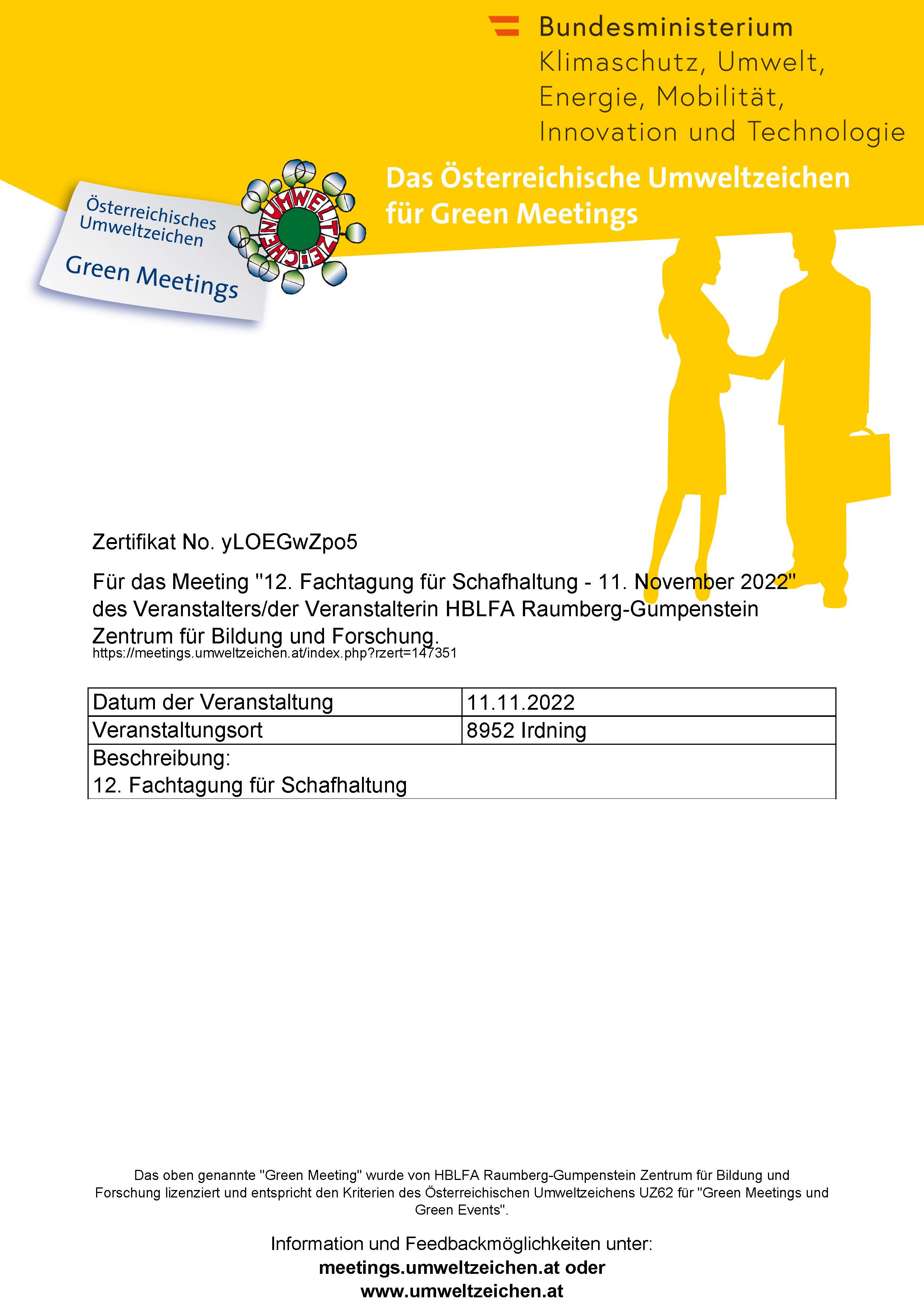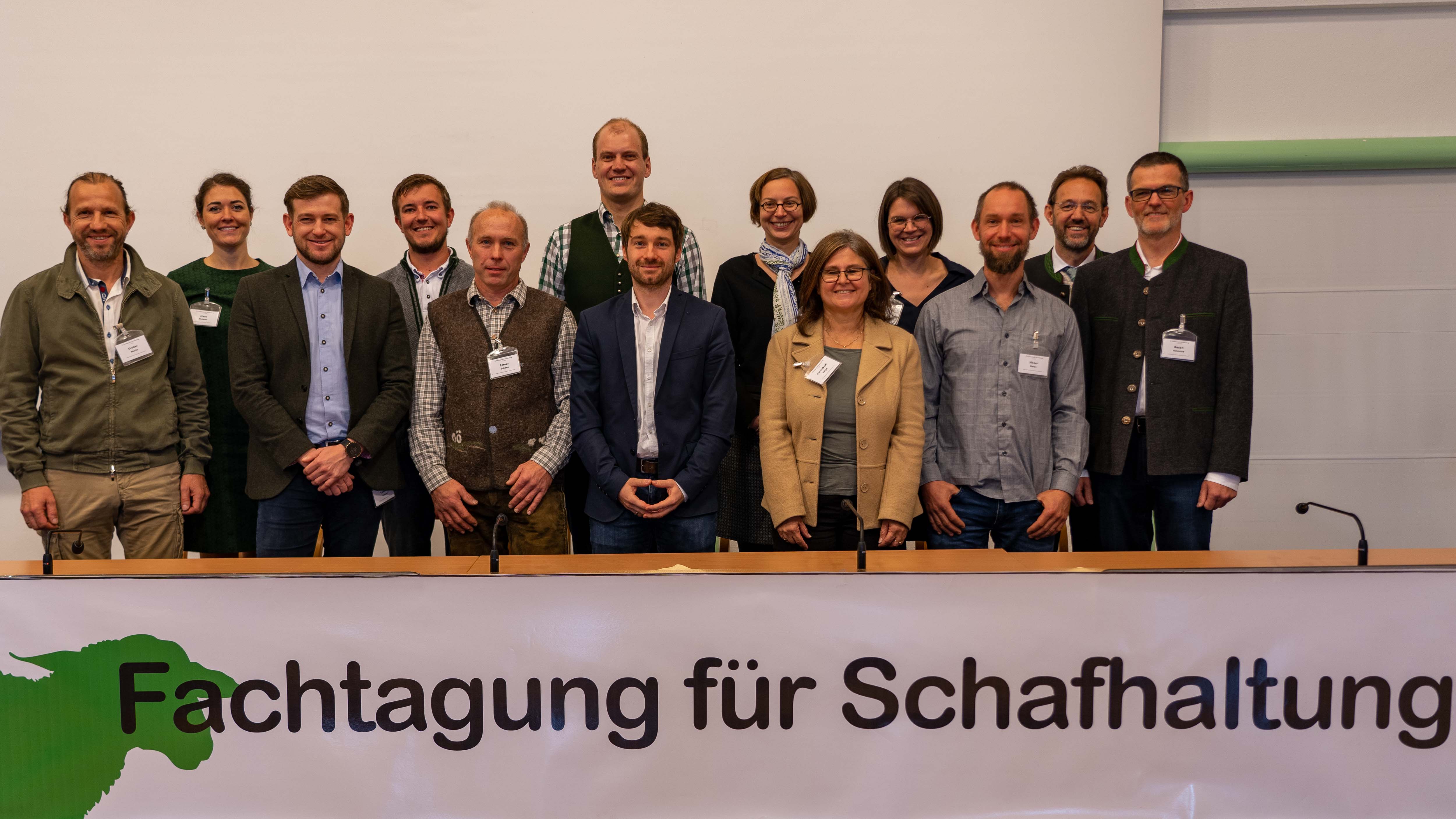The event was opened by Dr. Georg Terler on behalf of Direktor Dr. Johann Gasteiner from the HBLFA Raumberg-Gumpenstein and welcomed the participants and the speakers. The first block of lectures was dedicated to the topic of feeding and breeding, which was led by DI Roland Taferner from the Austrian Federal Association for Sheep and Goats (ÖBSZ). Melanie Haas, graduate student from BOKU Vienna, spoke about optimizing the milk production of sheep through correct rearing and feeding management. Afterwards PD Dr. Birgit Fürst-Waltl from BOKU Vienna new characteristics in breeding value estimation for sheep. Johann Perner from Pilsbach in Upper Austria ended block one and explained what needs to be taken into account when feeding a total mixed ration in lamb production.
The second block of the conference, with the chairwoman Dr. Margit Velik from the HBLFA Raumberg-Gumpenstein was all about basic feed. DI Lukas Gaier, also from the HBLFA Raumberg-Gumpenstein, spoke about promoting feed quality by optimizing the plant population. Ing. Reinhard Resch, also from HBLFA Raumberg-Gumpenstein, then devoted himself to avoiding quality and mass losses as the key to improving the quality of silage and hay. Mag. Martin Gruber from the veterinary practice in Semriach reported on the influences of feed contamination on animal health.
In the afternoon, the focus was on current research results from the field of alpine farming, which also brought us to block three. The chairman of block three was Dr. Thomas Guggenberger from the HBLFA Raumberg-Gumpenstein. It started with DI Markus Fischer from the Austrian Chamber of Agriculture, who spoke about alpine farming in the new Common Agricultural Policy (CAP). Dr. Thomas Guggenberger then reported on the forage area survey and the natural eating behavior of sheep and goats and how the GPS collars record and record their location. Simon Moser, MSc from the Alpe Austria office reported on strategies, developments and perspectives of herd protection projects on sheep pastures in the Tyrolean Oberland. Markus Pekoll, mountain bike coordinator from the state of Styria, explained whether mountain biking on the Alpine pastures needs to be rethought. DI Josef Meierl, forestry teacher at the HBLFA , discussed the hunting perspective in his short lecture, namely the interaction between alpine pastures, hunting, livestock and game. In her statement, DI Evelyn Zarfl, chairwoman of the ÖBSZ, dealt in detail with the question of whether wolves have their place in Austria. At the end there was a panel discussion with all speakers of the afternoon as well as Ing. Konrad Liebchen (journalist) and Dr. Ferdinand Ringdorfer, former head of the sheep and goat department at the HBLFA , took place. The panel discussion was led by Dr. Thomas Guggenberger led it and so all participants had another chance to ask or express their open questions and suggestions.
Feedback from conference participants and the lively participation in the discussion of the presentations showed great interest in the conference. Interested farmers, advisors, teachers and sheep farming specialists were offered a valuable training opportunity in the form of this hybrid event.
Pictures from the 12th Sheep Conference

Conference contributions and lectures
To listen to - the released recordings of the presentation
Haas Melanie: Optimizing the milk production of sheep through correct rearing and feeding management
Fürst-Waltl Birgit: Service life and conformation - the new characteristics in breeding value estimation
Gaier Lukas - Promoting feed quality by optimizing the plant population
Resch Reinhard - Avoiding quality and mass losses as the key to improving silage and hay
Moser Simon - Herd protection projects in the Tyrolean Oberland - strategies, developments, perspectives
Guggenberger Thomas - Climate change in the alpine pastures



































